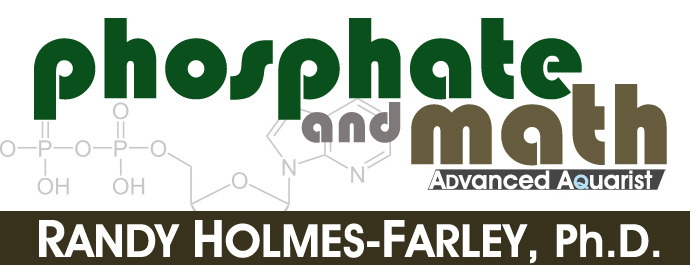- Joined
- Feb 28, 2017
- Messages
- 1,611
- Reaction score
- 1,044
Yes I do have chaeto.Do you have a fuge? Chaeto in a fuge will help keep Phos down.
Follow along with the video below to see how to install our site as a web app on your home screen.
Note: This feature may not be available in some browsers.
Yes I do have chaeto.Do you have a fuge? Chaeto in a fuge will help keep Phos down.
You did eh? I am going to try not to feed my coral for a week and just let the eat fish poop and see how it goes and will report back
I am running GFO 24/7Chemipure Elite will lower phosphate and keep it in check.
Phosphates (PO4) can be created within the closed aquatic system or imported from the outside. Phosphate is a by-product of mineralization of dead matter such as plants, bacteria, feces, uneaten food, fish slime etc. are all internal contributors. Even some sea salts and water source can produce phosphates. All living organism contain phosphorus. Phosphorus is an kimportant element of life as a component for cell membranes, as an energy source, and for other bio-chemical processes.
I usually target feed. I am going to try coralamino y brightwellI did broadcast feed. You can also target feed to reduce waste with pumps off. A good amino acid always helps also

ANY uneaten food will increase phosphate.

Thoroughly rinse things like frozen Mysis, frozen Bloodworms, or any other number of frozen foods into a container of water and watch the nasty crud that was 'ABOUT' to go into your tank, to needlessly overwork your filtration system!

Ur tank is too young. Its registering 0 likely bc your rocks/substrate likely have not reached saturation. Esp if you started with dry rocks. It's probably absorbing some po3 and po4 so very little is left in the water column for the tests to pick up.This is a good thread and I am struggling to get nutrients in my tank to. Im reading 0 nitrates and Phosphates. I feed twice a day, once flake once brine and missis shrimp. This is a lot in all my experience with other tanks. The difference with this tank is that I have a skimmer. I currently have a timer on it to run for 30 min then off for 30 min. My question is if I am feeding heavy with 7 fish in a 55 gallon that is going on its 6th month can the skimmer be too efficient?
Hello Randy,Any food, whether eaten or not, will increase phosphate.
Most of the N and P in an eaten food is excreted back to the water.
Fish poop is the best coral food .You did eh? I am going to try not to feed my coral for a week and just let the eat fish poop and see how it goes and will report back

Hello Randy,
I have a question about this. Regarding foods like frozen and pellet food, does phosphate first become excreted from fish as the organic form and then turns into the inorganic form?
Because the filtration I use (skimmer and filter socks) really only help remove the organic forms. If the fish excrete the inorganic forms, then skimming is pretty much unhelpful in that regard.

